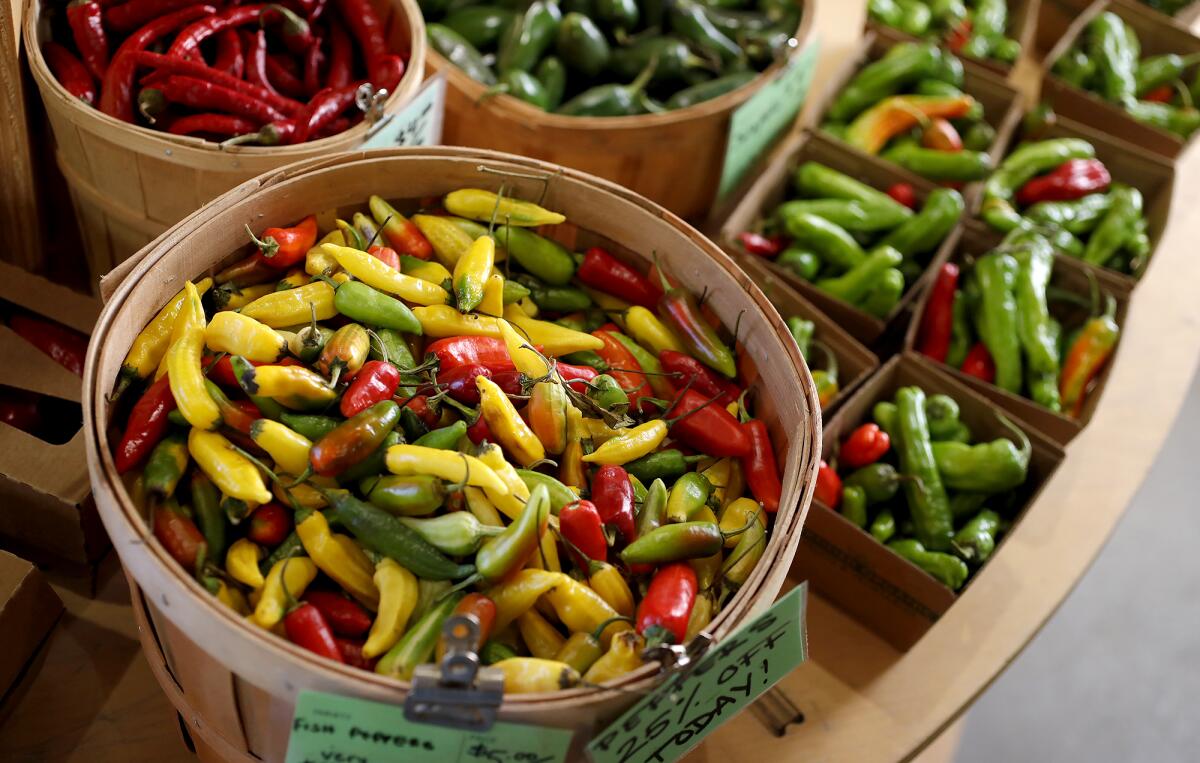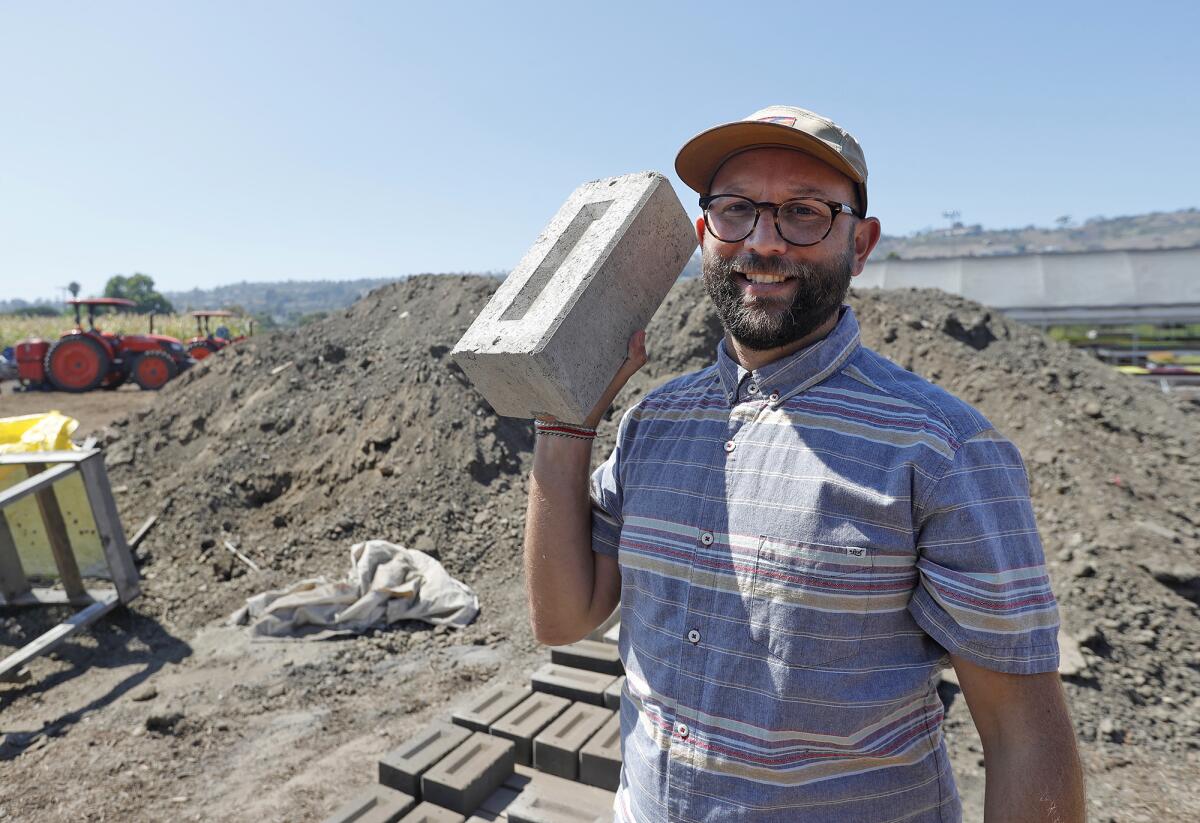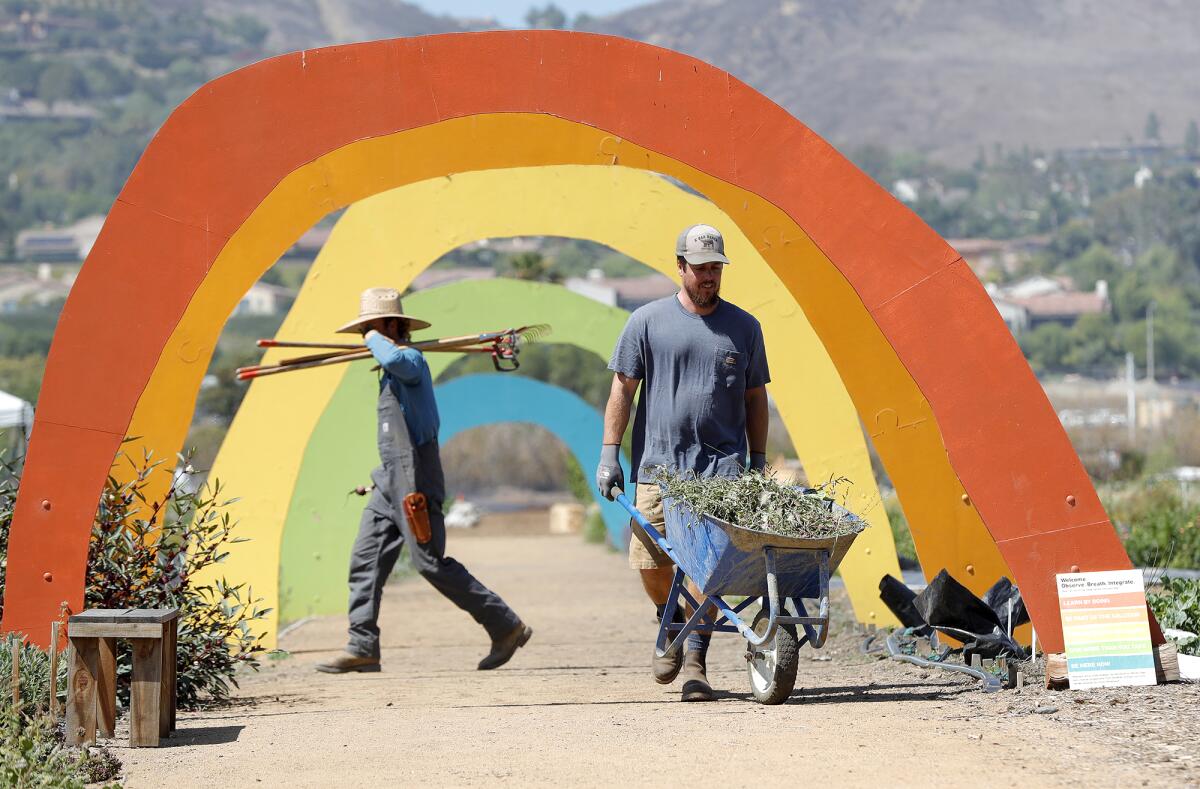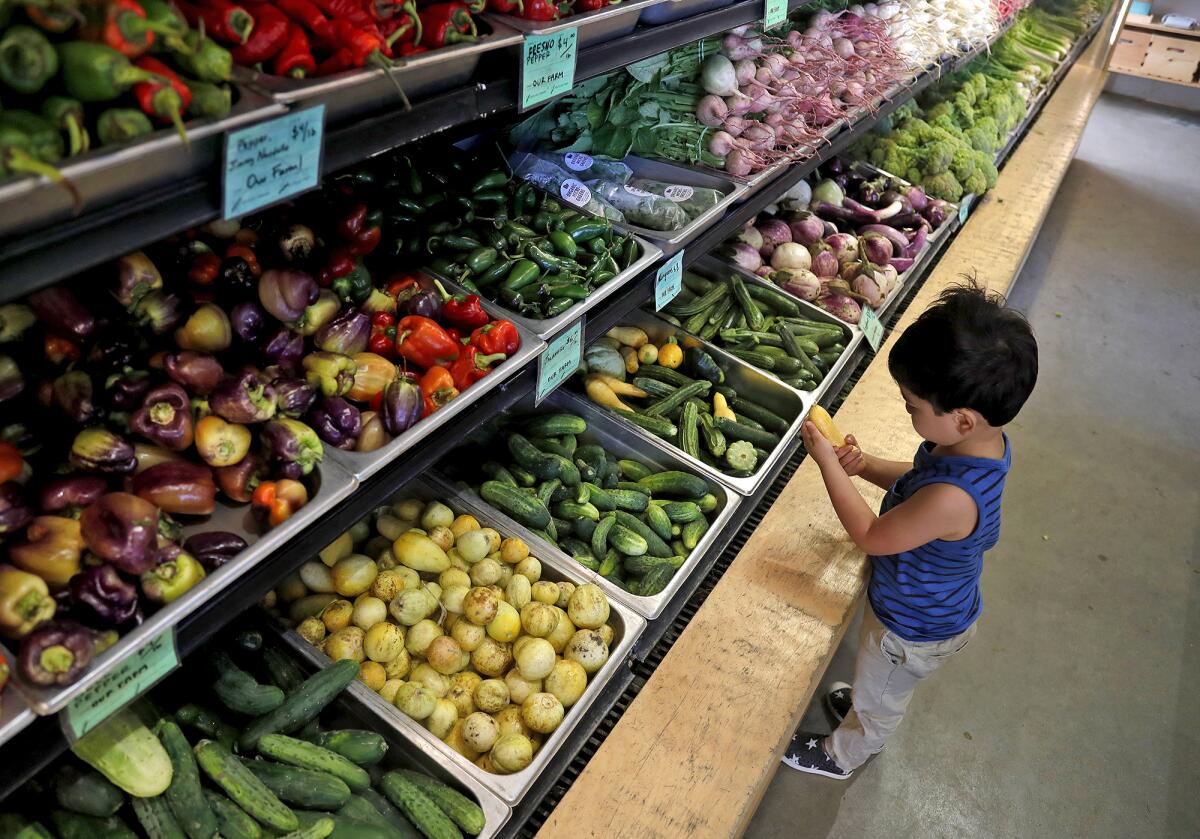Ecology Center sets the table for 13th annual Green Feast in San Juan Capistrano

- Share via
The Ecology Center in San Juan Capistrano sets the table for its 13th annual Green Feast on Sept. 18 and 25, and diners will have a lot more room to spread out than in years past.
“For about 10 years we were only about three-quarters of an acre,” said Jonathan Zaidman, director of engagement at the Ecology Center. “But when the city offered up the opportunity to expand and take over the surrounding 28-acre farm, that was a no brainer for us.”

Before the expansion, the Ecology Center mostly hosted educational activities like field trips, farm dinners and documentary nights. The center has taken what was once an organic commercial farm from an import/export model to hosting dozens of vegetables, fruit, berries, lettuce, flower and herb varieties, with everything the farm produces staying here in Orange County.
Green Feast is the center’s cornerstone fundraiser, which Zaidman calls an immersive culinary and agricultural experience meant to foster a closer connection between people and the food system.

“Green Feast has been a partnership between the organization, our farm and interesting chefs that are trying to tell ecological stories,” Zaidman said.
Beyond just the meal, the ticket includes interactive elements that showcase the value and importance of the center’s work.
“One of those stations is demonstrating the apprenticeship program that we have here, teaching young people how to grow food,” Zaidman said.
The Ecology Center employs eight farm apprentices who go through rotations on the farm learning not only how to grow food but also the culinary side. They learn how to prepare food so they can then take their skills and start their own small farms.
Another station during the feast focuses on the center’s Nourishing Neighbors program.
“We donate 20 percent of what we grow on this farm,” Zaidman said, “and we have a few partner organizations that we do that work with here speaking about the importance and value of accessibility to local, organic, regenerative, seasonal food.”
The speakers stress how important it is that organic produce not only be accessible to those who come to the Ecology Center’s farm stand but also to those who may not have the resources to afford the highest-value food.
The farm stand is open seven days a week from 9 a.m. to 6 p.m., and a designated section of fruits and vegetables is always available free of charge in order to promote equity.

Before the groups are seated for dinner, a blessing of the meal and the land is offered from a local tribal elder.
“The tribe that lived on this land before we stewarded it is called Ajachemen … so we have a few elders from that population do a blessing for the land and the meal and for us all,” said Zaidman. “Highlighting the cultural values that have been here long before is very important to us.”
The meal served at Green Feast highlights everything that is grown on the farm and is prepared by James Beard Award-winning Chef Tim Byres.
“He is as aligned as a chef we have ever worked with,” Zaidman said of Byres’ commitment to not just the prepared final plate but where everything comes from, its effect on the environment and all the people who grew it.
“His superpower is cooking on what is called ‘live fire’ — cooking on the fire in front of you.”
The dinner is designed around the four rotations of the center’s regenerative organic farm. Mark Magiera, former operations manager of Chez Panisse Restaurant and Café, selects wine pairings.
Tickets are sold in groups of four, as a table for $1,600, and the funds directly benefit the Ecology Center’s programming and activities.
“Our philanthropic commitments really support a dozen initiatives everywhere from educational programming to scholarships and field trip opportunities,” said Zaidman.
Surrounding schools and the nearby Boys & Girls club have access to educational programming at the Ecology Center at no cost, for example.
In addition, the money supports the nearly 100,000 pounds of fresh organic produce the center donates a year and keeps participants in the apprenticeship program paid.
Donations also benefit the center’s Nourishing Neighbors program, a reoccurring giving campaign in which $35 a month helps feed a food-insecure family.

“We have 115 families a month receive our farm share boxes for free,” Zaidman said.
While half of the center’s operation and programming is supported through philanthropy, the other half is supported through earned income.
The center hosts several other events throughout the year with varying degrees of price points.
“During the spring we did an event called Peace Pizza,” Zaidman said.
The event was ticketed at a lower cost of entry and included pizza, salad, dessert and a drink on the farm.
“We also have our Hearth Dinners — we did 18 dinners this summer, with an intimate setting in direct conversation with Chef Tim, with a little bit more of a higher price-point experience.”
Upcoming events besides Green Feast include Eco Tots, a sensory, hands-on learning experience in the garden for children ages 2 to 5 and their parents on Oct. 2, 9 and 16, and Jim Denevan’s “Outstanding in the Field” traveling dinner series on Oct. 14.
With support from the community, Zaidman said the center can continue its work of bringing back a culture of small-scale, culturally appropriate agriculture. It’s important that others learn to replicate the work at the Ecology Center, he said.
“Replication is really to ensure that we are not just one of the last farms in Orange County but the first in a new generation,” Zaidman said.
All the latest on Orange County from Orange County.
Get our free TimesOC newsletter.
You may occasionally receive promotional content from the Daily Pilot.




